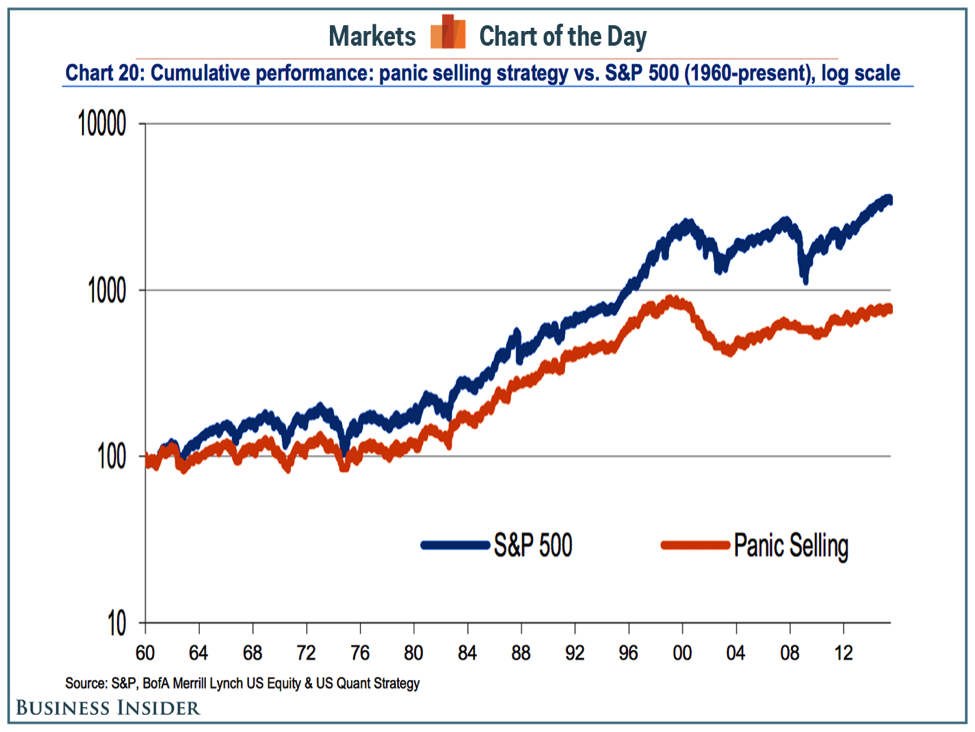Bird Watching and the Emperor’s Robe
We create and communicate ProsperOn’s to deliver timeless, valuable wisdom to our clients, with the hope to provide greater clarity, capability and confidence. In other words to help people be better investors. We hope these are valuable to you and your family.
In August of 2015 the financial markets seemed to do what nobody likes but nearly everyone knows is normal – they “corrected”. A more accurate description of a market correction is when prices fall by 10% in a short period of time. That short-term decrease can cause panic or an attitude that investing is “risky”. Panic, driving either buying or selling, may be a poor strategy destined to cause investors to lose money.
I believe emotion has moved to the forefront of public sentiment, prompted by a very loud media. This emotion is causing wild short term volatility, resulting in the frequent ups and downs we’ve been experiencing. But let’s consider what I believe to be the leading causes of these swings: the August correction, Chinese instability, and the possibility of a Fed rate hike.
In the last weeks of August, the broad equity market (or the S&P 500) went down 11%. From an all-time peak in May of 2015, it declined approximately 12.4%. Keep in mind this is the first time in nearly four years that equities experienced a correction, or a decline in excess of 10%. That’s remarkable given that since 1980 the market has experienced an average correction of 14% once a year. Nonetheless, corrections create panic, causing investors to second-guess their strategies. It’s important to remember, corrections do happen. But they are only a cause for concern if they inspire knee-jerk reactions that pull investors off their plan. Long term plans always account for corrections as a normal part of investing.
A slowing growth rate in China also seems to be causing some concern for investors. It’s important to remember that as a Communist country, China’s growth rate is controlled and manipulated by their government. Furthermore I believe the government statistics are more fictional than accurate. These falsehoods may be starting to unravel as the world begins to wonder what is actually under the emperor’s robe. But consider this fact: America’s export to China accounts for only 1% of total exports. So if China is slowing, will that really have a large effect on American businesses? I think not. Rather we are huge beneficiaries from Chinese exports. Think of all the goods “made in China” at stores like Wal-Mart. The lower the prices on those goods, the higher standard of living for millions of Americans.
Another issue fueling an emotional reaction are the bird watchers – you know, the Fed Hawks and Fed Doves – Birds? The current “bird watch” worry is if the Fed interest rate hike will occur at some point early next year. Could higher rates stall the economy and result in tumbling stock prices and declining markets? Frankly I think this entire issue has been blown way out of proportion. We’re talking about raising rates for the first time in nine years by a virtually insignificant amount. I doubt this will have any long term effect.
Remember, stocks are companies. Stock prices are significantly more volatile than the enduring values of well-financed, well-managed companies with a focus on the long term. The long term is what I believe intelligent investors should be focused on. But the “boring” long-term doesn’t sell newspapers or fill TV time. According to a study published by Business Insider in August, investors tend to significantly underperform market benchmarks when they react and use emotion as a strategy. This “get me to safety” strategy doesn’t do anyone any good.

*The S&P 500 index is a measure of performance of the broad domestic economy through 500 stocks from major industries. Past performance is no guarantee of future results. All indices are unmanaged and may not be invested into directly.

*Panic selling percentages are based on an investor selling after a 2% down-day and buys back 20 trading days later, provided the market is flat or up at the end of that period
So in moments of stress don’t let emotion cloud your long-term plan. When the negative gets to be overwhelming, just remember that you’re actually invested in successful, well-managed, well-financed, profitable, dividend-paying companies that are out to provide essential goods and services to people like you and me. The rest of the noise is just that, noise.
Remember, call us if you’re feeling concerned. We can’t make the market go up, but we can help provide perspective and insight. Thank you for being a client of Prosperion Financial Advisors.
Steve Booren is the Owner and Founder of Prosperion Financial Advisors, located in Greenwood Village, Colo. He is the author of Blind Spots: The Mental Mistakes Investors Make and Intelligent Investing: Your Guide to a Growing Retirement Income and a regular columnist in The Denver Post. He was recently named a Barron’s Top Financial Advisor and recognized as a Forbes Top Wealth Advisor in Colorado.
Stock investing involves risk including potential loss of principal.
The payment of dividends is not guaranteed. Companies may reduce or eliminate the payment of dividends at any given time.
Sources:
Inspired: https://www.businessinsider.com/baml-panic-selling-vs-sp-500-returns-2015-8 and Nick Murray - October 2015







